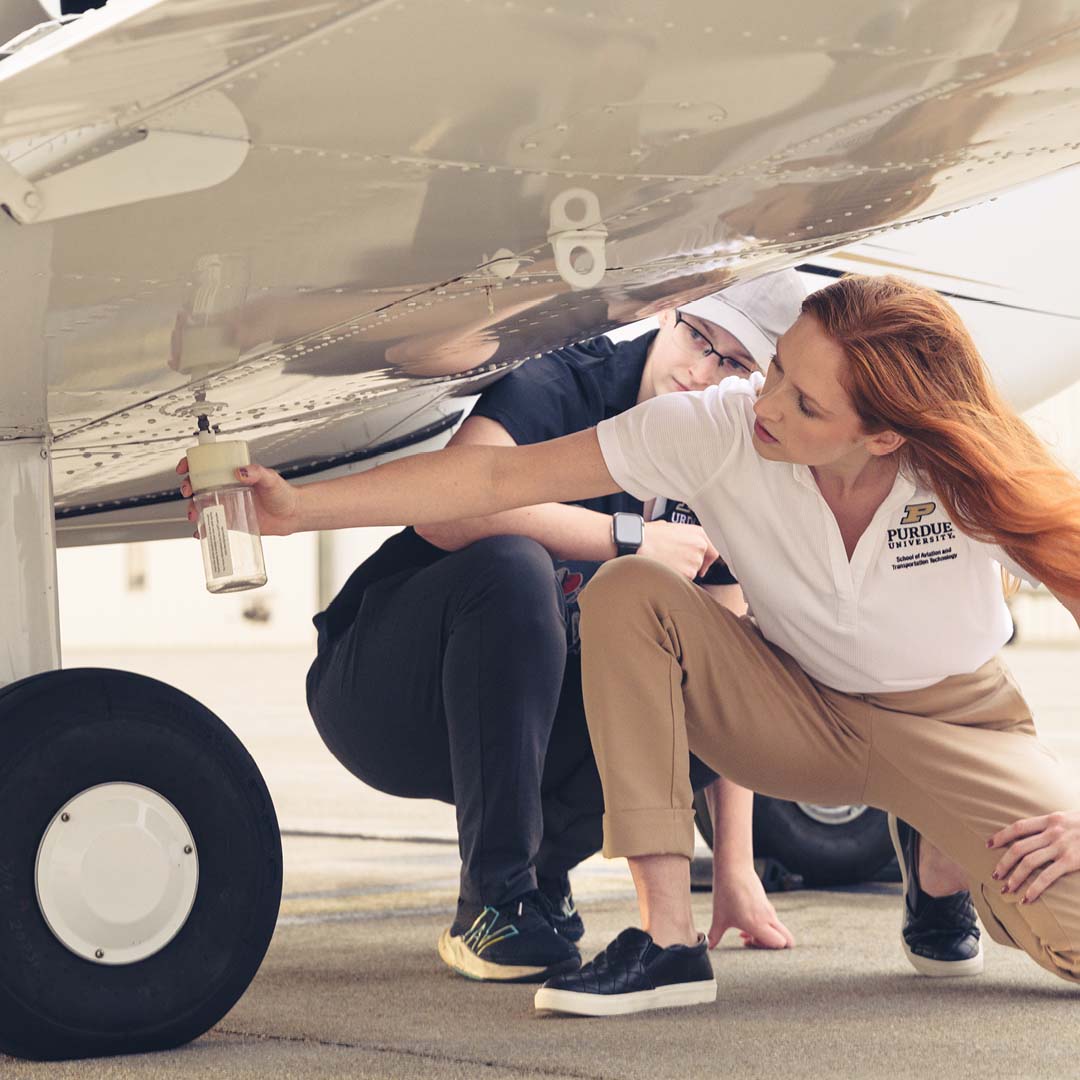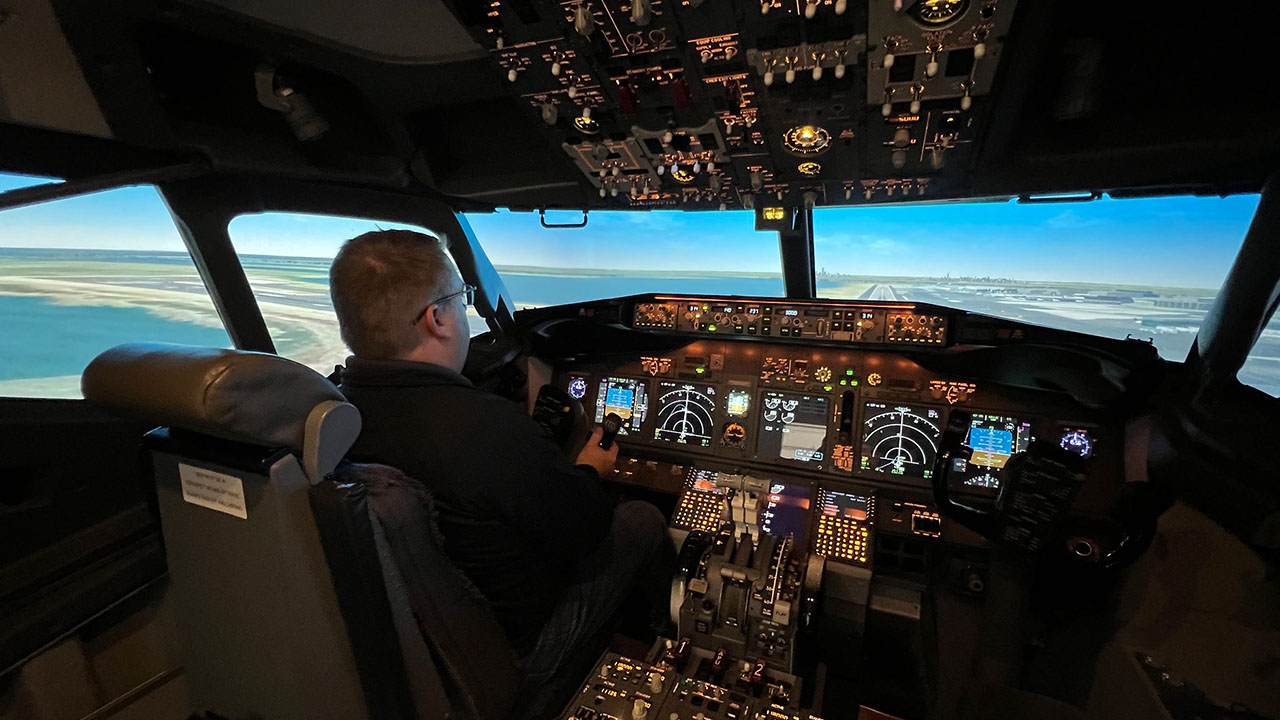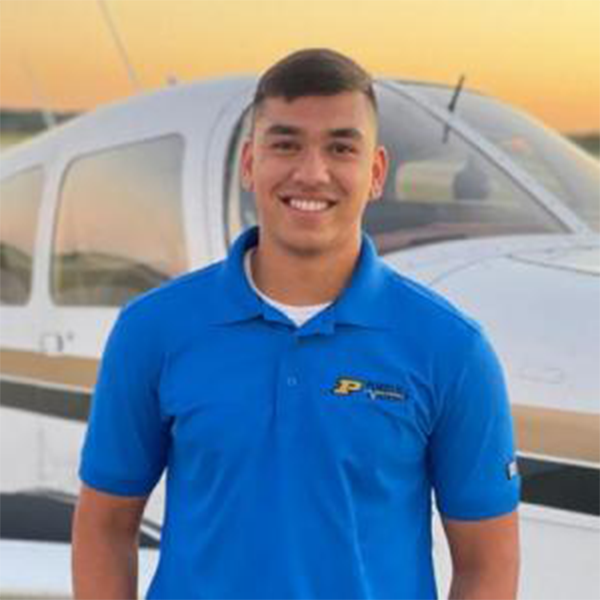Professional Flight
Professional Flight
Take to the Skies with Professional Flight Training!
Are you passionate about flying and eager to become a professional pilot? Purdue University's Professional Flight Technology major offers a dynamic and hands-on educational experience designed to prepare you for a successful career in aviation. Our program combines rigorous flight training, advanced aviation courses, and industry insights to ensure you are ready to excel in your professional journey.
In this major, students build expertise in aviation operations, flight proficiency, aircraft systems, and safety management. They develop skills in navigation, risk assessment, and meteorology, while studying aviation law, business operations, and leadership. Through simulation labs and hands-on flight training, students integrate technical knowledge with professional standards, preparing for diverse aviation careers.
Why Choose Purdue's Professional Flight Major?
- Comprehensive Curriculum: Our courses cover a wide range of topics, from basic flight training to advanced turbine operations and airline indoctrination.
- Hands-On Learning: Gain practical experience through flight labs, simulators, and real-world applications.
- Industry Connections: Benefit from Purdue's strong ties with leading airlines and aviation companies.
- Career Opportunities: Explore diverse career paths as a commercial pilot, flight instructor, airline pilot, and more.
Embark on a journey that combines technical expertise, flight training, and industry knowledge. Purdue University's Professional Flight Technology major is your gateway to a thriving career as a professional pilot.
Graduate in three years with this major as part of our Degree in 3 program. An advisor can help explain the course load and necessary requirements to complete your degree a year earlier.
Program Details
Potential Employers
United Airlines
Envoy Air
NetJets
Frontier Airlines
Potential Job Titles
Flight instructor
Executive pilot
Airline captain
Professional pilot
Where You'll Learn

The professional flight program is accredited by the Aviation Accreditation Board International.
EVERY GIANT LEAP STARTS WITH ONE SMALL STEP
Course Highlights

Academic Opportunities

Study Abroad
All students in the Purdue Polytechnic can choose to gain an enriched perspective of the global marketplace through a multitude of global experiences that both interest and benefit the student.

Minors
Purdue Polytechnic offers minors that provide unique opportunities to expand your knowledge, broaden your experience and prepare you for success after your time at Purdue.

Student Organizations
Student activities and organizations are a great way to immerse yourself in your chosen path of study. Choose from a variety of interests within the college organizations or university-level programs.

